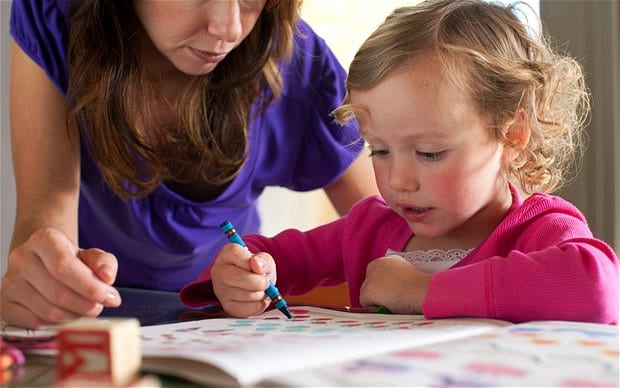There are incredible psychological benefits of learning another language. These benefits extend way beyond being able to order a cup of tea abroad.
Longitudinal studies by Harvard University confirm that learning additional languages increases critical thinking skills, creativity and flexibility of the mind in young children.
Pupils who learn a foreign language outscore their non-foreign language learning peers in verbal and maths standardised tests, indicating that learning additional language is a cognitive activity not just a linguistic one.
The brain, like any muscle, functions better with exercise. Learning a language involves memorising rules and vocabulary, which helps strengthen that mental muscle.
When children join the preschool class of Moreton First at three years of age, they are exposed to four languages.
The rubrics of spoken English are practised and enhanced through songs, stories and nursery rhymes, and modelled and explored as the children enter their make believe world of role play.
French lessons are introduced and, without even realising they are learning a second language, the children follow the story book adventures of favourites such as ‘Bob le bricoleur’ and the ‘La Chenille qui a très faim’. Using the mediums of music and drama, the children can be heard spontaneously singing along to French songs.
‘Mr China’, nicknamed by the children, arrives in our pre-prep class with props and games and Mandarin Chinese begins. Ni hao! At the age of three and four, our youngest pupils engage in game-like activities and within a short time become familiar with the language that now dominates the international business world.
The preschool home corner is dotted with Spanish and English labels. The children have the opportunity to play there accompanied by a fluent Spanish teacher. As the children create imaginary games she models Spanish, encouraging the children to copy her. It is fun and learning is incidental.
However, further exciting research on the benefits of this early learning has come from Dr. Pascual-Leone, professor of medicine at Harvard Medical School.
His study provides an important first step in understanding the impact of learning a second language and the ageing brain. This research paves the way for future causal studies of bilingualism and cognitive decline prevention.
But why should learning another language be started at such a young age?
Simply, the younger the learner, the better they are at mimicking new sounds and adopting pronunciation. The brain is open to new sounds and patterns in preadolescence.
At this age, young children have time to learn through play-like activities. Language lessons can be informal and children’s minds are not yet cluttered with facts to be stored and tested. Before children become self- conscious they can try out their newly acquired languages without fear of embarrassment.
Children who grow up learning about languages develop empathy for others and a curiosity for different cultures and ideas; prepared to take their place in a global society. Furthermore, in later years, career opportunities increase for those with additional languages to offer.
As the academic year gets under way and most schools gear up to accommodate the Government’s directive for Autumn 2014 – that every seven year old child should have lessons in a foreign language – I ask: why wait until seven?
Catherine Ford, head teacher of Moreton First Prep School
Copy of : http://www.telegraph.co.uk/education/educationopinion/11151726/Children-should-start-learning-languages-at-age-three.html





